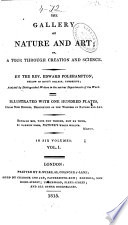 | Edward T W. Polehampton - 1815 - 568 pages
...bodies, and established as a principle, that all particles of matter attract each other directly of their mass, and inversely as the square of their distance....the system of the world might be deduced from it. Bv considering gravity at the surfaces of the celestial bodies, as the result of the attractions of... | |
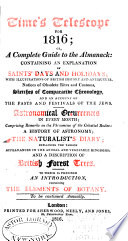 | 1816 - 420 pages
...bodies that rest upon it. He extended this proposition to all bodies whatever, and established the principle ' that all particles of matter attract each...as their mass, and inversely as the square of their distances.' Having arrived at this principle, Sir Isaac Newton saw that the great phenomena of the... | |
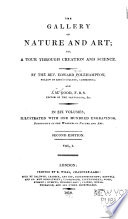 | Edward Polehampton, John Mason Good - 1818 - 590 pages
...bodies, and established as a principle, thai all particles of matter attract each other directly at their mass, and inversely as the square of their distance....Arrived at this principle, Newton saw that the great ph;i;uomen;i of the system of the world might be deduced from it. By const, dering gravity at the surfaces... | |
 | John Mason Good - 1826 - 536 pages
...equally applicable to the minutest corpuscles, and the hugest aggregations of matter, — that all the particles of matter attract each other directly as...mass, and inversely as the square of their distance, he at once beheld the cause of those perturbations of motion to which the heavenly bodies are necessarily... | |
 | John Mason Good - 1828 - 542 pages
...applicable to the minutest corpuscles, and the hugfest aggregations of matter, — that all the pariu-lcs of matter attract each other directly as their mass, and inversely as the square of their distance, he at once beheld the cause of those perturbations of motion to which the heavenly bodies are necessarily... | |
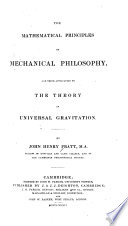 | John Henry Pratt - 1836 - 672 pages
...position of the planets made upon this hypothesis of their gravitating towards the Sun with a force directly as their mass and inversely as the square of their distance from the Sup are found to agree very well with the observed positions, if the calculations extend over... | |
 | 1837 - 594 pages
...position of the planets made upon this hypothesis of their gravitating towards the sun with a force directly as their mass, a.nd inversely as the* square of their distance from the sun, are found to agree very well with the observed positions, if the calculations extend... | |
 | William Somerville Orr - 1856 - 556 pages
...revealed to human intellect. It is, that all the heavenly bodies attract one another by a force varying directly as their mass, and inversely as the square of their distance from one another ; the mass of a body being considered as the sum of the particles of matter constituting... | |
 | Matthew Boyd Hope - 1859 - 314 pages
...the case of our illustration, the law is, that nil bodies attract each other with a force, varying directly as their mass, and inversely as the square of their distance. The entire completeness of this step iii the inductive process, supposes the ability to explain all... | |
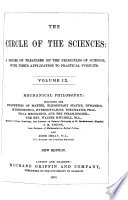 | William Somerville Orr - 1860 - 540 pages
...revealed to human intellect. It is, that all the heavenly bodies attract one another by a force varying directly as their mass, and inversely as the square of their distance from one another ; the mass of a body being considered as the sum of the particles of matter constituting... | |
| |